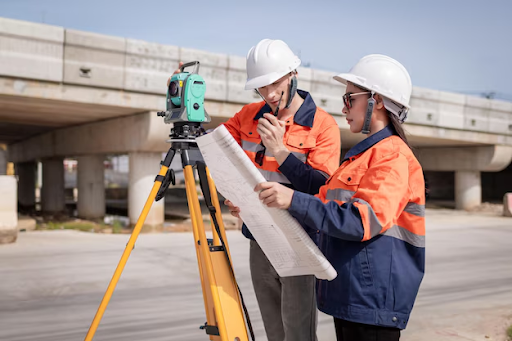Property Surveys in Chichester: A Complete Guide for Homebuyers
Buying a home in Chichester feels exciting until you start thinking about what might be hiding behind those freshly painted walls. Most people spend more time choosing a sofa than they do understanding their property survey. That’s a mistake you don’t want to make.
A property surveyor in Chichester protects you from buying someone else’s expensive problem. Period properties look charming from the street, but damp, subsidence, and structural issues don’t announce themselves during viewings. You need a professional to look properly behind the facade.
The question isn’t whether you need a survey but which type will actually save you from regret six months down the line?
Why Chichester Properties Need Proper Surveys
Chichester has everything from Victorian terraces to modern flats near the harbour. Each type brings different risks to the table.
Older properties might have solid walls that trap moisture. Newer builds sometimes cut corners you can’t see yet. Even that perfect cottage in the conservation area could be sitting on dodgy foundations.
Your mortgage lender will insist on a basic valuation. Don’t confuse this with a proper survey. Valuations exist to protect the bank, not you. They confirm the property is worth the loan amount. Nothing more.
A proper survey in Chichester digs deeper. It finds the problems that will drain your savings later.
The Three Types of Property Surveys
RICS offers three survey levels. Each serves a different purpose.
- RICS Home Survey Level 1 covers the basics. It’s a visual inspection that flags obvious problems. Think of it as a health check rather than full diagnostics. Best suited for newer properties in good condition, where you just want peace of mind.
- RICS Home Survey Level 2 goes further. This is what most buyers choose. The surveyor examines accessible areas and reports on the condition of different elements. You’ll get advice on defects, repairs, and maintenance. It works well for conventional properties built in the last century that appear reasonably maintained.
- RICS Home Survey Level 3 means a full structural survey. The surveyor investigates everything in detail. You’ll receive a comprehensive report covering construction, materials, and any concerns about stability or serious defects. Choose this for older buildings, listed properties, or anything that’s been altered or extended significantly.
What Happens During a Survey
The surveyor visits the property and spends several hours looking at everything accessible. They won’t lift floorboards or move furniture, but they’ll check what they can see.
Roofs get inspected from ground level or with binoculars. Sometimes they’ll go into the loft if it’s safe. External walls, windows, and doors all get examined for cracks, movement, or decay.
Inside, they look at walls, ceilings, and floors for signs of damp or structural movement. They check the cavity wall construction if applicable. Heating systems, plumbing, and electrics get a visual assessment too.
After the inspection, you receive a detailed report. Good surveyors write in plain English rather than hiding behind jargon. The report will rate different elements by condition and highlight anything that needs attention.
Common Issues Found in Chichester Properties
Dampness tops the list. Chichester sits close to the coast, and moisture finds its way into older buildings. Rising damp, penetrating damp, and condensation all cause problems. Some are simple fixes. Others point to bigger structural issues.
Subsidence affects certain areas more than others. Clay soil shrinks and swells with the seasons. Trees near foundations make it worse. Cracks aren’t always serious, but you need someone who knows the difference between settlement and actual movement.
Roof problems hide well until they become expensive. Missing tiles, worn felt, or damaged timbers might look fine from the ground. By the time you notice water stains on the ceiling, the damage has already spread.
Period properties bring their own challenges. Timber frame construction in older cottages can rot if moisture gets trapped. Original windows might be single-glazed and draughty. Listed building restrictions limit what repairs you can do.
Questions to Ask Your Surveyor
Not all surveyors know Chichester well. Ask how familiar they are with local property types and common issues in the area.
Find out what their report includes. Will they provide photos? Do they give repair cost estimates? How quickly will you receive the final document?
Check their qualifications too. RICS membership matters. It means they follow professional standards and carry proper insurance.
Some surveyors offer extras like drone roof inspections or thermal imaging. These cost more but reveal problems hidden from normal view.
What to Do With Your Survey Report
Read it properly. Don’t just skim the summary. Understanding the full picture helps you make better decisions.
Minor issues exist in every property. Worn paintwork or a dripping tap won’t derail your purchase. Focus on the serious problems that affect safety, structure, or future value.
Use the report to renegotiate if needed. Sellers might drop the price to reflect repair costs. Sometimes they’ll fix urgent issues before completion. Other times, you’ll walk away because the problems are too severe.
Your solicitor should see the report too. Legal issues might be connected to physical defects. Boundary disputes, rights of way, or building regulation concerns all matter.
Timing Your Survey
Book the survey as soon as your offer gets accepted. Most take one to two weeks from instruction to receiving the report. You need this information before the exchange of contracts.
Delays happen. The property might be tenanted or the seller might be slow in arranging access. Chase it. Every day that passes ties up your deposit and limits your options if problems emerge.
Winter surveys can be harder. Poor weather stops roof access and some exterior checks. If you’re buying off-season, discuss limitations with your surveyor beforehand.
Making the Final Decision
The survey report doesn’t make the decision for you. It just gives you the facts you were missing to arrive at a studied judgement.
Some buyers panic over every defect. Others ignore red flags because they’ve fallen in love with the property. Neither approach serves you well.
Speak with your surveyor if anything confuses you. Good ones welcome follow-up questions. They’ve seen hundreds of properties and know which problems matter most.
Factor repair costs into your budget realistically. That £5,000 roof repair becomes £15,000 if you ignore it for a few years. Properties don’t improve with neglect.
Protecting Your Investment
A property survey in Chichester isn’t an optional extra. It’s your insurance against buying a money pit.
The few hundred pounds you spend now could save you tens of thousands later. More than that, it gives you confidence in possibly the biggest purchase of your life.
Choose the right survey level for your property type. Use a qualified local surveyor who understands Chichester buildings. Read the report carefully and act on what it tells you.
Your future self will thank you for taking this seriously.
Keep an eye for more latest news & updates on The Knowledge Arrow!


